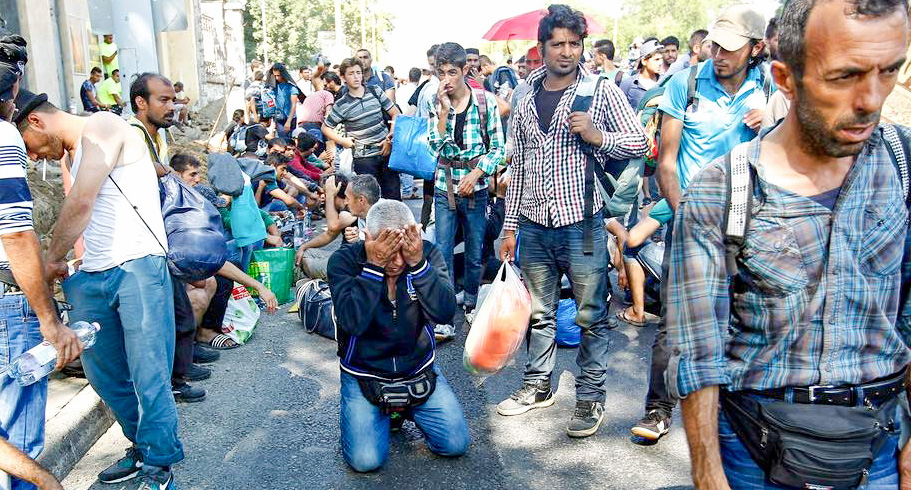
As a young immigrant to Canada, I see this nation as a place of refuge, safety, and civil peace. In comparison to where I came from, Canada has given me an education, accessibility to stable social services and healthcare, and a sense of empowerment for who I am as an individual. So what is it that we as Canadians can do to be that nation of peace and diversity? Give the right of passage to more Syrian refugees.
According to the UN Refugee Agency website, there has been an increasing number of refugees since the Arab Spring in January 2011, from only 8,000 to over 4 million and counting, all fleeing from war-torn communities throughout the Middle East. Oddly enough, according to the UN Refugee Agency, last month, 47 per cent of those from Syria claiming asylum fled to Germany and Sweden, and 33 per cent fled to Austria, Serbia, Hungary, Bulgaria, and the Netherlands — while only 20 per cent fled to “other” categorized countries.
Canada was not even listed as a notable receiving country! Immigration Minister Chris Alexander commented on Canada’s role in the Middle Eastern migrant crisis in an interview with CTV, stating that Canada needs to “continue accelerating [its] refugee resettlement” in order to meet the Conservative government’s goal of granting 10,000 refugees asylum over the course of three years. But 10,000 refugees is not enough.
Compared to all the countries that are currently accepting well over Canada’s prospective 10,000 Syrian refugees, we have more geographical space and resources to provide the proper refuge for displaced groups. Why should Canada resettle fewer refugees than European countries that are already overpopulated with limited resources and services? For example, according to the Guardian, Germany expects to resettle 800,000 Syrian refugees this year alone, adding significantly more to their already-existing population of 80 million. This influx in population growth will put Germany’s natural resources and geographical space in a vulnerable social, political, and economic state — unlike in Canada, where we have an overwhelming amount of available land, resources, and services that could assist the resettlement of Syrian families.
The question that continues to surface in political coverage concerns the prioritization of the current federal budget. Should Canada set aside a significant portion of the budget for military defense? Or should they allot part of the budget for more refugee resettlement programs? According to a recent poll posted by the Toronto Star, 24 per cent of Canadians agree with the Conservative government’s plan to take military action against ISIL and keep the resettlement numbers down to only 10,000 Syrian refugees over three years, whereas 52 per cent of Canadians believe that we need to open our borders wider and let more in.
Of course, having a large group of refugees who are claiming political and religious asylum will increase Canada’s socio-political and infrastructural challenges. When we let in a group of people who are fleeing from a war-torn region of the world, it is difficult to ignore any form of potential threat to the cohesion of our Canadian society. But, in the words of Pope Francis in his recent address to the Roman Catholic Church, “Faced with the tragedy of tens of thousands of refugees who are fleeing death by war and by hunger, and who are on a path toward a hope for life, the Gospel calls us to be neighbours to the smallest and most abandoned, to give them concrete hope … It’s not enough to say ‘Have courage, hang in there.’”
Finally, we have let millions of refugees and immigrants into our socio-geographical space throughout history, so what makes this different? Denying accessibility to a family that is trying to find a new life and new hope for their children is political and social dissension for dissension’s sake. Canada needs to take an empowering role in the social justice movement and be a voice of peace and restoration. After all, at some point in our family histories we were all immigrants and refugees on a journey of hope, peace, and life. As a Canadian immigrant myself, I encourage this country to take that step towards peace and reconciliation for those who have no hope, and no freedom.


